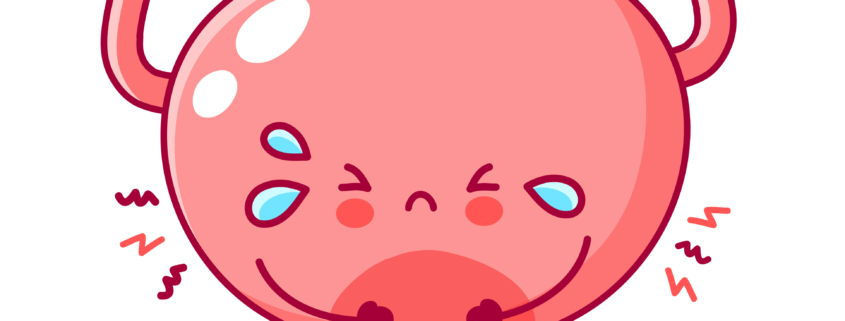Chronic UI: OAB and SUI Blog
Listen up, my dear nursing colleagues! It’s week 3 of National Bladder Health month. The focus is education regarding stress and urge urinary incontinence (UI). Everyone knows someone who has urinary urgency, frequency or leakage with activity, it may even be YOU! I am here to tell you that there are so many easy, non-invasive methods to address this embarrassing problem! I have story after story of my continence clinic patients confirming what they thought could never happen- Bladder Control with Confidence!
Here’s your next ‘To Do’ List to educate yourselves or patients on what works to get that continence confidence!
- First, consider the POWER of reversing the reversible causes of UI! Remember the mnemonic TOILETED, DIAPPERS, PPRAISED? Addressing these can often cure or at least reduce bladder symptoms! Review the 2nd WOCN Core Curriculum: Continence Management (2022), Chapter #3 authored by Dr. Sandra Engberg & myself or check this Medscape article out for a quick refresher on the reversible causes of urinary incontinence (UI). https://www.medscape.com/answers/452289-172388/what-are-the-transient-causes-of-urinary-inco
- Find out WHO in your area provides Pelvic Floor Boot Camp. I assure you, someone does this. I live in a small rural area, and I have TWO physical therapists specializing in biofeedback assisted pelvic floor muscle rehab and electrical stimulation! This modality is covered by almost all insurances and Medicare; why… because it works! Not a believer? Check out this Cochrane systematic review by Dumoulin et al. To cut to the chase, go to the author’s conclusions. https://www.ncbi.nlm.nih.gov/pmc/articles/PMC6516955/
- Does urinary urgency and frequency got you tied to the bathroom? Then download your favorite Urge Suppression and Bladder Drill/Training brochure, read it, and practice it along with fluid and dietary modification! Here’s a testimony for you: I had middle-aged woman running a day care using the toilet 6 times an hour! (Not sure how she could possibly watch all those kiddos with that bathroom schedule.) She was engaged, committed and was able to limit the number of voids to once every 3 hours. Talk about quality-of-life and child safety enhancement!
- Remember to Freeze, Squeeze, & Breathe! Here’s a just one sample of a handout on urgency incontinence from University of Iowa Hospitals & Clinics https://uihc.org/health-topics/urgency-incontinence
- Just for YOU, a fantastic six-week bladder training brochure from National Association for Continence (NACF): https://nafc.org/s/NAFC-Bladder-Retraining-Guide.pdf
- This booklet says it all in a manner patients can understand regarding OAB: https://nafc.org/s/NAFC-Bladder-Retraining-Guide.pdf
- Right now, I’m gonna get up close and personal for you menopausal ladies with GSM (Genitourinary Syndrome of Menopause). Symptoms may include urinary urgency, frequency, dysuria (without UTI), painful sex, dry vagina, vaginal infections, and or recurrent UTIs. NOT fun! Please chat with your PCP on ultra-low dose vaginal estrogen (cream, tablet, or ring) which can significantly reduce GSM! I have seen dramatic improvement in urogenital health in many menopausal women with this modality.
- What if … your family or you have a history of breast cancer? Then read the opinion paper from the ACOG (American College of Obstetrics and Gynecology) which notes to date, transvaginal estrogen has not increased the risk of breast cancer in individuals who have or had breast cancer. https://www.acog.org/-/media/project/acog/acogorg/clinical/files/clinical-consensus/articles/2021/12/treatment-of-urogenital-symptoms-in-individuals.pdf
-
- Check out a short video by Dr. Ashley Winter who gives an overview of vaginal estrogen for GSM. https://www.urologytimes.com/view/dr-winter-provides-an-overview-of-vaginal-estrogen-and-its-potential-uses
- Lastly, I don’t mean to end on a sour note, but I must share that being overweight can dramatically increase the risk of stress and urge UI! The good news, studies confirm that even modest weight loss (5%-8%) can create a ‘DRY’ continence status! Develop a realistic plan of action, maybe grab a friend or significant other to lose weight together and GAIN back optimal bladder control.
- Want details? Click on this article: Marcelissen, T, Anding, R, Averbeck M, Hanna-Mitchell A, Rahnama’i S, Cardozo L.Exploring the relation between obesity and urinary incontinence: Pathophysiology, clinical implications, and the effect of weight reduction, ICI-RS 2018. Neurourol Urodyn. 2019;38 Suppl 5:S18-S24. doi:10.1002/nau.24072
- For more information and resources regarding WEEK 3: Incontinence, Overactive Bladder and Stress Urinary Incontinence: https://www.urologyhealth.org/media-center/bladder-health-month/bladder-health-month-week-3
JoAnn Ermer-Seltun, MS, RN, ARNP, FNP-BC, CWOCN, CFCN
WEB WOC Programs President, Co-Director & Faculty
MercyOne North Iowa Continence Clinic



